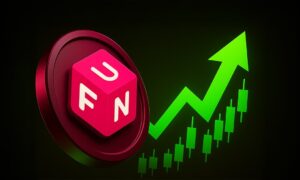Holly Berry is a writer for Akomplice, a Marketing Company and Marketing Technology Agency located in Salt Lake City, Utah.
About this article:
This article was fact-checked by Todd Noall. Todd Noall is an editor at Akomplice, a Marketing Technology Agency located in Salt Lake City, Utah.
According to the Harvard Center for International Development, “Since the early 2000s exchange-traded funds (ETFs) have grown to become an important investment vehicle worldwide.” With their flexibility, low cost, and ease of access, ETFs appeal to a wide range of investors, from beginners to experienced traders. However, like all investments, they are subject to market fluctuations and broader trends. For those investing in exchange traded funds, understanding how market trends impact ETFs is crucial for making informed decisions.
Market Volatility and Its Influence on ETFs
Market volatility is a significant factor that affects ETF performance. Volatility can be driven by economic indicators, geopolitical events, or unexpected changes in interest rates. During periods of uncertainty, ETF prices can fluctuate, sometimes rapidly, depending on the sectors or assets they track. Investors should pay attention to these shifts, as volatility can present both risks and opportunities, especially when using trading software for short-term strategies.
Sector-Specific Trends
Market trends can have a varying impact on ETFs depending on the sectors they focus on. For instance, rising interest rates can negatively affect bond ETFs, especially those with long durations. Conversely, equity-based ETFs in sectors such as energy or technology may benefit from specific trends, like the adoption of green energy or advances in digital innovation.
When using software, it’s important to keep an eye on these sector-specific trends, as they can offer both risks and potential rewards. An ETF that focuses on emerging technologies might see growth in a booming market, while a sector in decline can hurt performance. Investors should track the underlying sectors of their ETFs, particularly in volatile markets, to capitalize on favorable conditions or limit risks.
For those seeking good ETFs that provide exposure to a mix of sectors, diversification is key. A well-diversified ETF reduces exposure to any single sector, offering more stability during uncertain market conditions. This can be particularly beneficial for long-term investors who want to weather market fluctuations without having to constantly rebalance their portfolios.
Global Economic Events and Their Ripple Effect
Global economic trends, such as inflation, international trade agreements, or currency fluctuations, can also impact ETFs. For instance, inflationary pressures can reduce purchasing power and lead to higher interest rates, negatively affecting bond ETFs and dividend-focused equity ETFs. On the other hand, equity ETFs in sectors tied to commodities like oil and gold may see gains during inflationary periods.
Investors investing in exchange traded funds with international exposure should be especially mindful of global events. Currency risk is a significant factor for international ETFs. A strengthening U.S. dollar, for instance, can reduce the value of foreign investments, while a weaker dollar can boost returns for U.S.-based investors in foreign assets. Keeping track of global events is important for ETF investors, particularly those involved in foreign markets, as the effects can be far-reaching.
For those using the best platform for stock trading, access to real-time data is invaluable in reacting to these global market changes. Many modern trading platforms offer tools and analytics that help investors gauge market sentiment and respond promptly to fluctuations in foreign markets.
The Role of Interest Rates in ETF Performance
Interest rates are another key market factor that impacts ETFs, particularly bond and income-generating ETFs. When interest rates rise, the prices of bonds and bond ETFs typically fall, as new bonds issued at higher rates become more attractive to investors. Conversely, when rates drop, bond ETFs generally perform better.
Additionally, rate changes can influence sector-based equity ETFs. Rising rates can benefit financial ETFs, as banks and other financial institutions tend to profit from higher interest rates. On the other hand, sectors like utilities and real estate, which rely on heavy borrowing, may be negatively affected by rising rates.
Technology and Trading Platforms
Advancements in technology have transformed how investors engage with ETFs. Today’s investors have access to some of the trading software that offer advanced analytics, real-time data, and customizable trading strategies. These platforms allow investors to act quickly on market trends, making it easier to adapt their ETF strategies to current conditions.
The rise of algorithmic trading, high-frequency trading, and artificial intelligence in the investment world has also influenced ETF markets. While these tools offer significant advantages for traders, they can also contribute to increased market volatility. Investors using the stock trading softwares should be aware of these dynamics and make sure they are using technology that aligns with their investing goals, whether they are long-term holders or short-term traders.
ETFs and the Future of Market Trends
As the market continues to evolve, ETFs will likely remain a popular investment tool for many investors. However, those investing in exchange traded funds should keep a close watch on economic indicators, interest rates, and global events to anticipate how market trends may impact their portfolios. Staying informed and adjusting strategies in response to these trends can help investors maximize returns and minimize risks. One company that offers valuable resources in this area is Decisive Investor, an online trading platform that focuses on leveraging market volatility. By providing advanced tools and insights, Decisive Investor helps traders take advantage of opportunities in the ETF market while limiting risks. For investors looking to enhance their strategies, the platform can be crucial in navigating the complexities of modern financial markets.



































